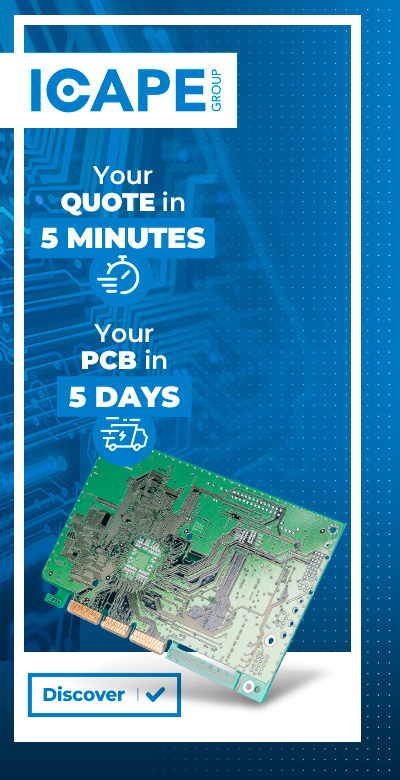Electronics Production |
TV, tablet, smartphone and computer in one master device
Convergence with a Caveat: Will the TV, tablet, smartphone and computer converge into one master device?
The evolution of the iPhone and Android smartphones have allowed consumers to be entertained, to easily access information on-the-go and to communicate with anyone from anywhere. Need directions to the nearest gas station? Look it up on Google Maps. Need restaurant recommendations? Launch your Yelp app. Need to waste 10 minutes while waiting for someone? How about a few levels of Angry Birds? Want to listen to music or watch a movie away from home? You can do that. Talk, text or facetime your friends? No problem.
As we all enjoy the features and functions enabled by today’s “smarter” mobile and portable devices, TVs have become smarter too. Today’s TVs are adding internet connectivity, streaming video and TV programming such as Netflix and Hulu, voice/video conferencing capabilities such as Skype, and much more. In addition, Smart TVs can access movies, pictures, and music on any DLNA capable device such as a Windows 7 machine or tablets.
As these devices become more powerful and feature-rich, some people think that we will ultimately see all of the capabilities of TV, mobile phone, tablet and PC converge into one master device. But is that really a possibility?
The short answer is, I don’t think so.
Battery Life
Consider first the matter of battery life. Gone are the days of going a week without needing to charge our phones. Most of us constantly charge our phones at home, work and even in the car just to power a single day. Even with this constant battery charging, many of us swap in other devices to further conserve power.
For example, I will use my iPod Touch to watch a movie during an hour at the gym, to be sure I have enough smartphone power for a conference call later in the day. Just imagine the incredible amount of battery life a device would need to provide in order to meet our daily usage appetite for all online/media consumption/phone activities. Today’s devices just can’t supply that.
Size Matters Secondly, what size would a master device be? Watching video content on my smartphone/tablet is a bit of a compromise. While this is something I would do on a plane or while stuck waiting for hours on end somewhere, while I am at home, I much prefer to watch movies/TV shows in front of my TV. Some people have proposed that the smartphone can become a set-top box by “docking” it with the TV. This capability will definitely be possible in the near future, but I don’t see this ever replacing a dedicated set-top box that stays in the living room. There are too many questions to sort out: Whose smartphone should be used as the main set-top box? What happens if that person receives a private phone call in the middle of a live football game? What happens if that person is not at home — how would the family watch a program that was recorded on that person’s phone? At least in my family, this simply wouldn’t work. Even in the future when all data will be stored remotely in the “cloud space,” and each device becomes more or less a screen with all content available on-demand, there will be a need for each device to retain its primary purpose. Primary Functions While a smartphone could operate as a master device, it’s very clear that smartphones, tablets, personal computers, set-top boxes, and TVs each have primary functions at which they excel. The smartphone is primarily a phone and mobile internet device. A tablet brings casual email and a better mobile internet experience with its larger screen. The TV is still a one-to-many entertainment device. And the PC is still the best machine for writing reports, developing Powerpoint presentations, and other work-related tasks. In the case of set-top boxes, that primary purpose is delivering premium content in a way that is secure, acceptable to content owners (e.g. HBO and Showtime) and seamless to viewers. The idea of any one of these devices becoming a “master device” spells compromise for the primary functions of those other devices. Smart devices will complement each other What these devices WILL do is complement each other by allowing intelligent interaction between devices. Today, we already see smartphones and tablets being used as remote controls for TVs. Very soon, we will be able to engage in even more advanced integrated tasks. For example, there have been many times while watching a TV show or movie that I wanted to find out more information about something in real time – perhaps the name of an actor/actress or the location of the scene I’m watching. With a tablet next to me on the couch, I can instantly research the relevant information. Even so, I need to type in my search terms on the tablet to get my information. And while today’s smart TVs allow us to access the internet in order to search directly from the TV, this interaction disrupts the show for everyone else. In the future, smart TVs and set-top boxes will have the ability to deliver relevant keywords to a connected tablet / smartphone by hitting a button on the TV remote allowing a user to search. In addition, game shows could allow multiple users at home to play along with contestants, vote for participants, or comment in real time. Using a tablet together with a TV during live sports events could enable a user to control different camera views, have user controlled instant replay, or bring up live individual or team statistics, all without disrupting what is being displayed on the TV. Convergence with a caveat I believe that convergence will indeed occur among devices, but it will be a kind of functional, not device convergence. We will continue to have separate devices, but they will speak and interact with each other much more seamlessly. Each device will have a lot of similar functionality, but will retain the primary functions at which they excel. Until we have the technology to deliver weeks of battery life on a device that will fit in my pocket and deliver a 60” HDTV experience when I’m home, I see each of these devices being part of our lives. It’s a convergence of functionality, but with a caveat. ----- Author: Kevin Kitagawa; Marketing Director Digital Home, MIPS Technologies Image Note: © MipsWill the TV, tablet, smartphone and computer converge into one master device? The short answer is, I don’t think so.
Kevin Kitagawa; Marketing Director Digital Home, MIPS Technologies




